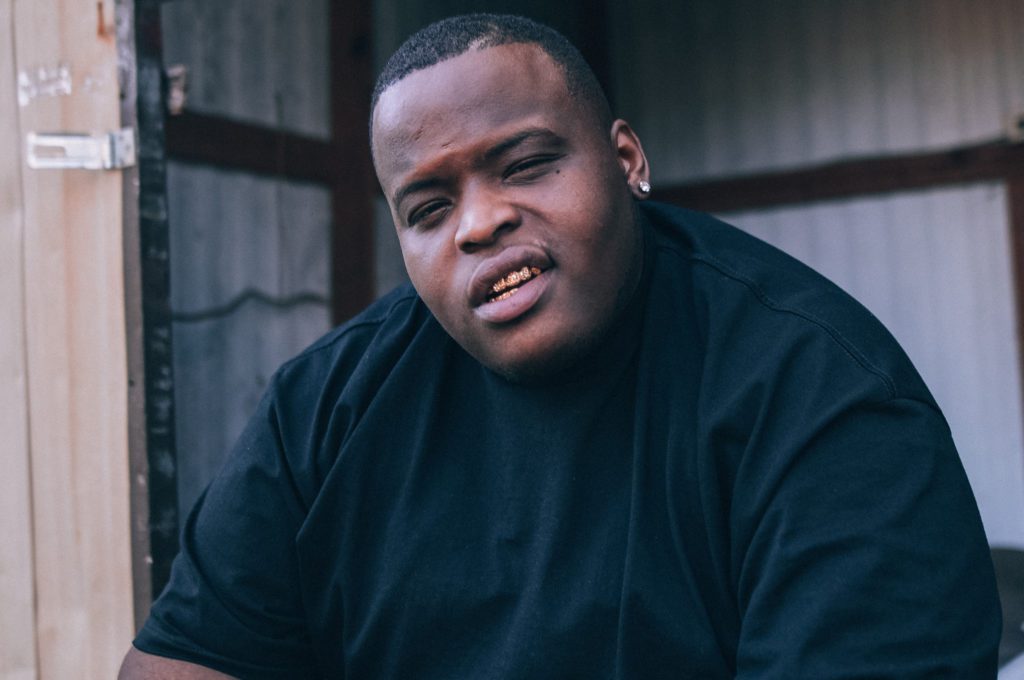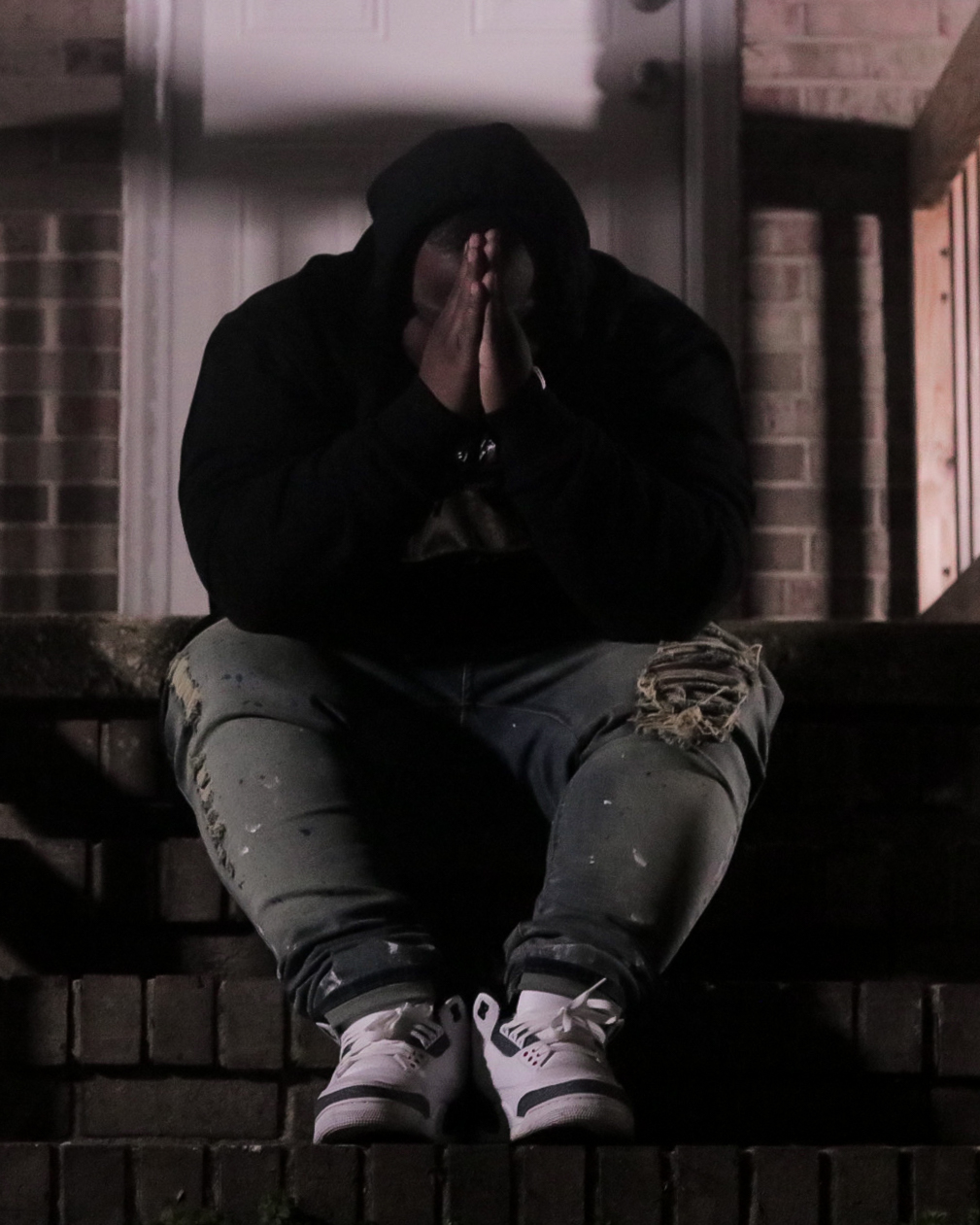Switched Up: Morray’s Life Changed With One Phone Call
 Posted On
Posted On
Many struggling musicians dream of the phone call that radically alters their career. For most, it remains a fantasy. The phone never rings. Or seemingly promising conversations with industry grifters don’t pan out. For Morray, the 28-year-old North Carolina native behind some of the most soulful trap music in contemporary rap, the call came in the darkest hour of his career.
Last July, Morray lost his job at a call center in his hometown of Fayetteville after taking time off to perform at small venues. He had three kids, his phone was cut off, and few people were listening to his music. After years of slowly saving and paying for studio time and music videos, Morray contemplated never recording again. Then Moe Shalizi saw the video for “Quicksand.” The founder of Shalizi Group — the entertainment and management company behind EDM superstars like Marshmello — Shalizi called Morray’s wife’s phone. He believed in Morray’s music and told him that he wanted to push Morray “as far as [he’s] willing to go.”
“I was praying for this opportunity to come, not thinking it would. And it came at my worst hour. I didn’t have shit,” Morray explains. “That was the best phone call I ever got in my life.”
After joining forces with Shalizi, Morray wiped all of his music from the internet. He’d never had the money to get his songs mixed and mastered, and he felt many needed to be scrapped or reworked. That wasn’t the case with “Quicksand,” “Switched Up,” and “Lowkey,” all of which he re-recorded in professional studios before they received proper engineering.
With over 13 million YouTube views in less than three months, “Quicksand” is Morray’s breakout. Backed by bluesy guitar, quaking drums, and skittering trap percussion, Morray half-raps and half-croons about felonious hustles and nearly fatal altercations. Throughout the single, he strings together polished yet poignant lines with melodic cadences. Morray says people have compared him to fellow crooning rappers Rod Wave and Roddy Ricch, but neither lands. His voice is more resonant than Rod Wave’s, and his songwriting has greater depth than than the majority of Ricch songs. On “Switched Up,” his pained ballad of betrayal, he sounds somewhere between the Cee-Lo of Goodie Mob and Gnarls Barkley. Morray’s flattered by each comparison, but the millions of views and countless new fans have brought him to tears.
“When I got my first 100,000 views, I cried. I’ve never had nothing in my life, and where I’m at now is amazing,” Morray says, his voice brimming with gratitude and enthusiasm as he speaks via phone in his Hollywood hotel room. In Los Angeles to work on his debut album, he claims to have recorded 12 songs in just 24 hours.
“I’m working hard on this album. I want to make sure that, if I do put it out, it’s exactly what people want to hear… They want to know more about Morray, so that’s what I’m going to give them.”
Morray’s December and January singles, “Dreamland” and “Big Decisions,” only offer glimpses of his harrowing biography. His mother worked tirelessly at low-wage jobs to keep a roof over their heads, but Morray’s absentee and abusive father added greater stress. They often lived out of motels or stayed with relatives. With little guidance and few role models, Morray began hustling in his early teens. Stints in juvenile detention eventually led to jail time. At 19, shortly removed from his last bid, Morray fathered his first child and took a job in construction. Carless, he walked hours to work each day.
Though he sang in the church choir, Morray didn’t pursue music until his early 20s. Raised on the gospel and R&B albums his mother played, he discovered rap through friends when his mother briefly moved them to Pennsylvania. He heard a lot of East Coast rap, but Drake soon became his favorite artist. “I found out who Drake was, and that was it. He sang and rapped. I always struggled about whether I wanted to sing or rap. When I found out he did both, I said, ‘Fuck it. I’ll do both.’”
Until recently, Morray made music he thought had commercial appeal. His wife encouraged him to rap about his life, to make music that would resonate with people who have similar stories. Morray, who’s quick to thank his wife for her support and advice, responded by writing “Quicksand.”
When Morray finishes his final day of L.A. recording, the self-avowed “family man” is heading home to his wife and children in Fayetteville. He doesn’t have everything he once rapped about, but he’s grateful. He hasn’t forgotten his life before that phone call.
“I have fresh Air Forces. None of my clothes are dirty. I got brand new dishes and new forks. N***as don’t see that as a win, but that’s a win to me.”



